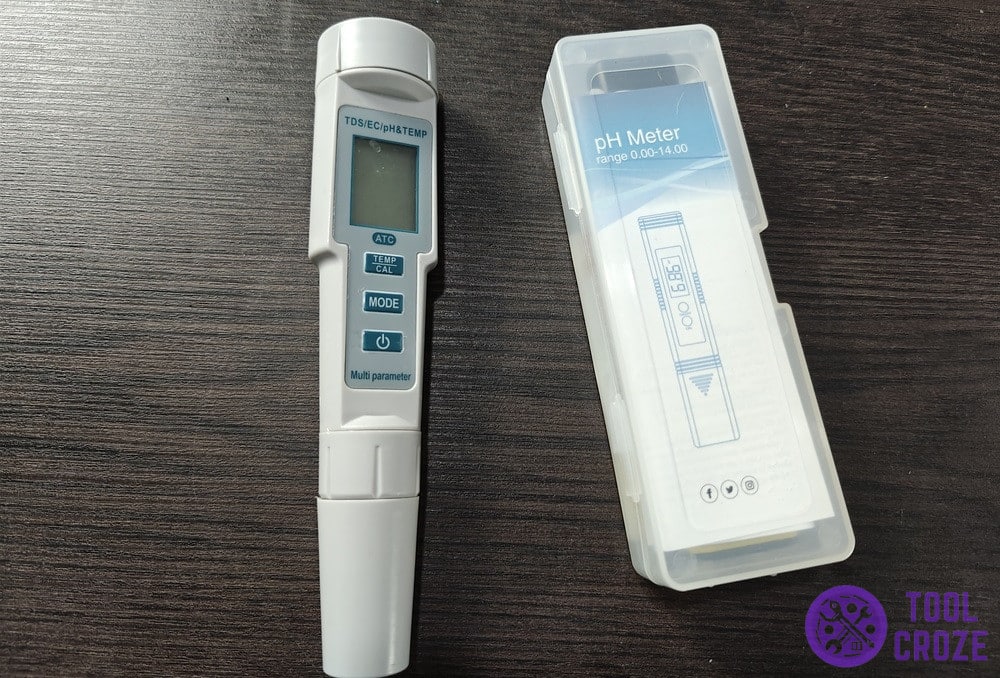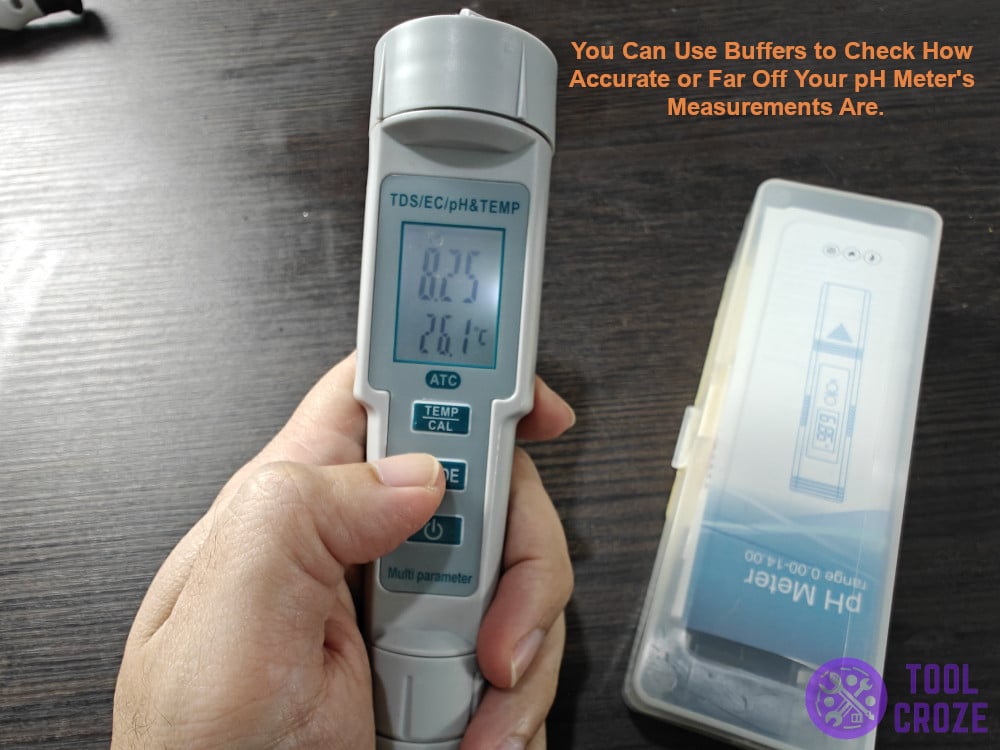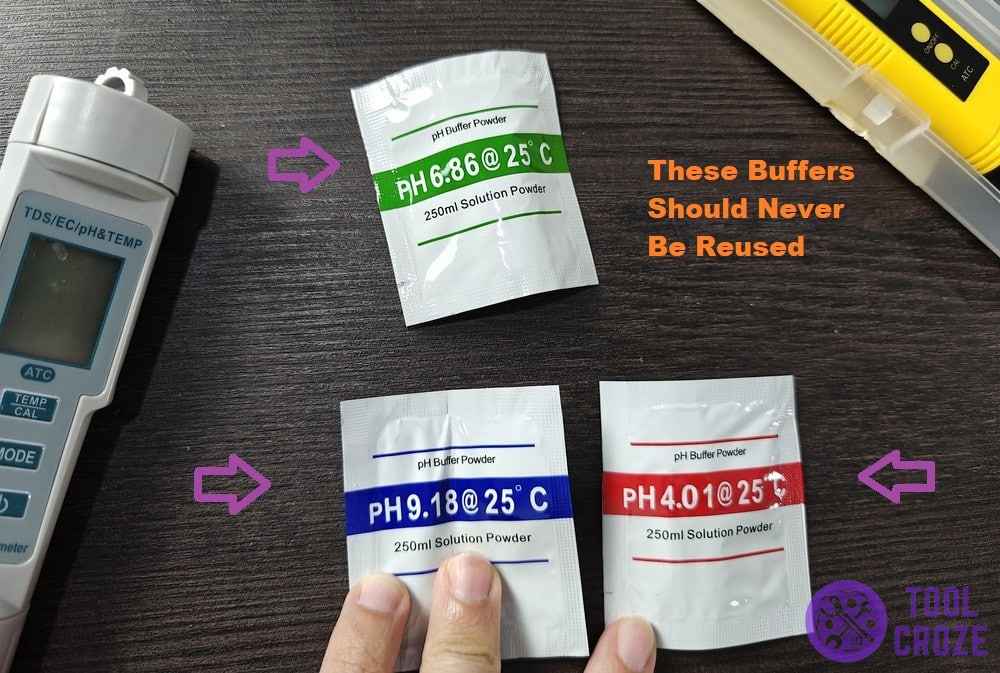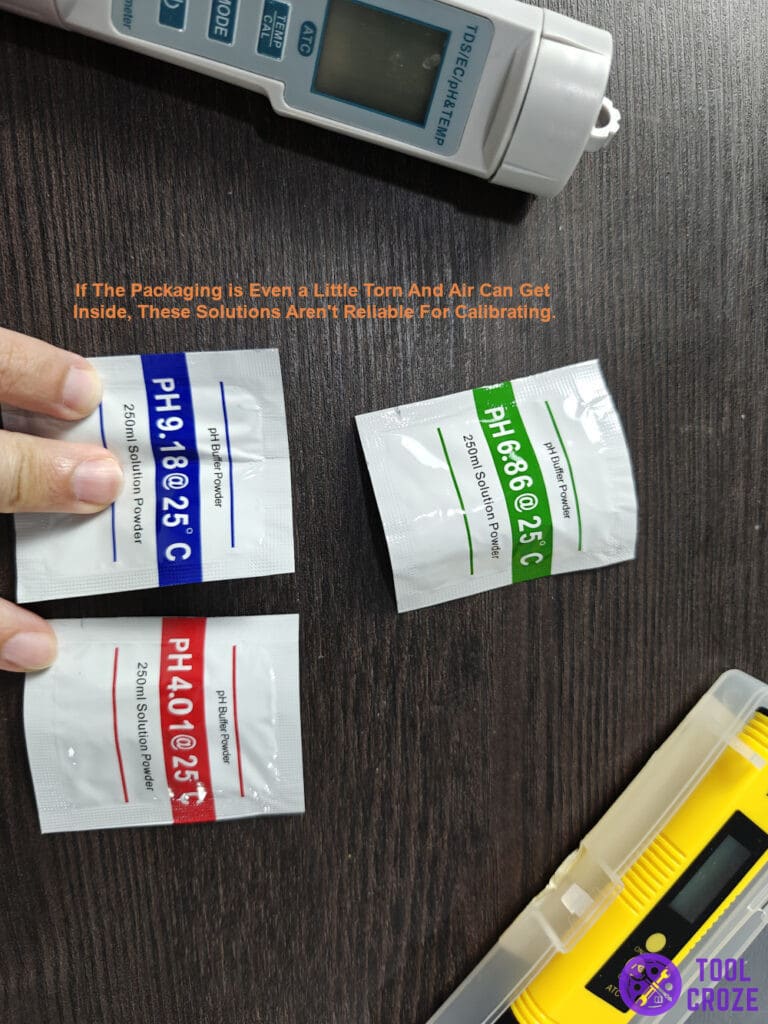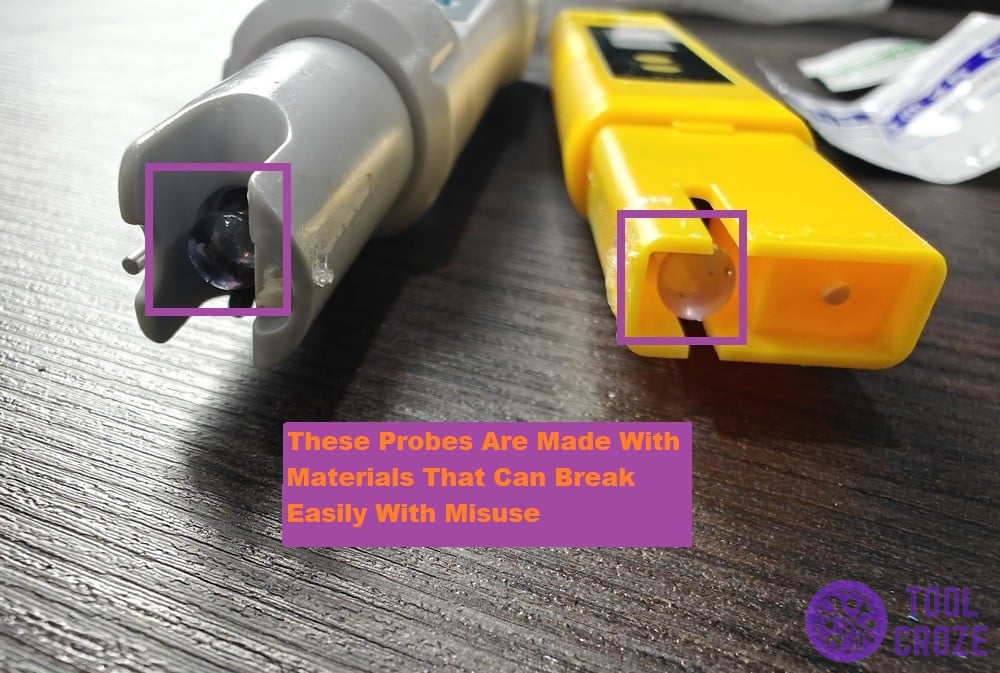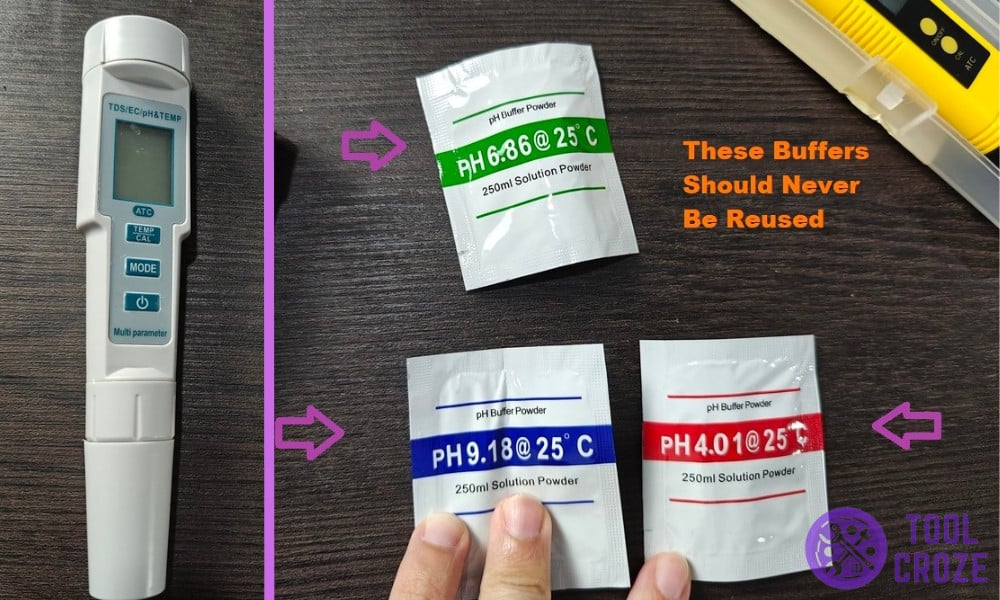
Calibrating a pH meter helps users ensure everything is fine by adjusting their readings. Certain things with the pH meter change over time which leads to different readings, and calibrating helps adjust for it.
But, if your pH meter is not calibrating, that’s an entirely different story. It’s a clear sign that there’s something wrong with the device, so let me help you take care of that!
3 Causes For A pH Meter Not Calibrating
- Old Probe
The probe is the part of your pH meter that comes into contact with the substances you want to measure. The device can’t take accurate readings or calibrate if there’s anything wrong with it.
One common thing to take into account for these is that they actually have “expiration dates”, technically. A lot of these probes don’t work for much more than 12-18 months.
After that time passes, they start to give wrong readings or don’t work entirely. That’s why I recommend you replace yours with a new one if you’ve been using it for more than a year.
With a new probe, readings will be much more accurate and you should have no problems calibrating the device. Just make sure to get one that supports your pH meter and is the right size.
- Don’t Use Old Buffers
Buffers are the little packets of solution powder that people often use to calibrate their pH meters. I always use them too, and I recommend you do the same since they’re quite reliable.
These powders have predetermined pH quantities. You can use them to check how accurate or far off your meter’s measurements are, allowing you to adjust as required.
But, make sure that you never use the same buffers twice. These things are made for one-time use, and they aren’t good after that, as their predetermined values are no longer accurate.
So, every time you use a pH buffer, dispose of it and get new ones like I have in the image below. They’re unopened and I’m going to use them to calibrate my own meter!
I recommend that you don’t use buffers that are even slightly open. It doesn’t matter if you didn’t even use them yet.
If the packaging is even a little torn and air can get inside, these solutions aren’t reliable for calibrating. It’s much better to use something completely fresh so you know your pH meter is calibrating properly.
- Damaged Probe
Even new probes can have damage on them that makes them no longer reliable. If you’re sure yours isn’t too old and the buffers are fresh, it’s probably just the probe being weird.
These aren’t the most durable things. Glass or plastic are the most common materials for them. As such, it’s easy for them to crack or break if you don’t treat these probes with care.
So, if your pH meter won’t calibrate, I suggest you inspect the probe. Check to see if there’s anything wrong with it, like cracking or chipping.
But, the damage isn’t easy to find every time. Sometimes, these probes can dry out if you store them in a dry area for a long time. Once a probe dries, it’s not useful any longer.
It won’t give accurate readings, and sometimes might not work at all. That’s why it’s always advised that you keep them in areas with moisture, and not warm, dry environments.
Long story short, your probe is the likely reason for a pH meter not calibrating. It is likely damaged and will have to be replaced with a new one, that can function and give accurate measurements.

